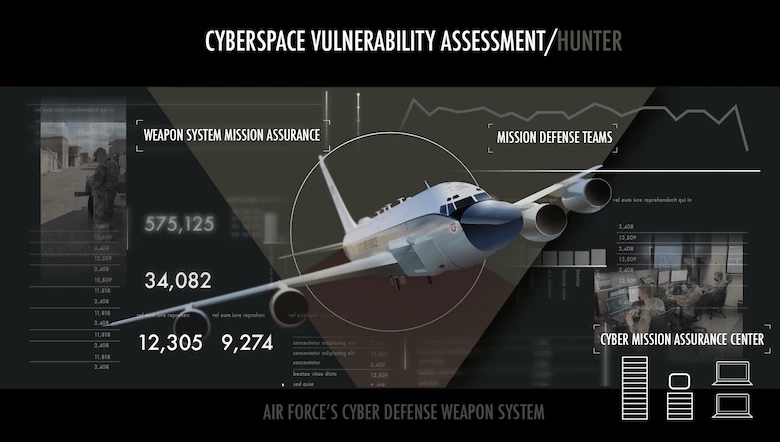OFFUTT AIR FORCE BASE, Neb. (AFNS) —
The 55th Communications Squadron recently met all objectives required by the Air Force to be redesignated as the 55th Cyber Squadron.

The redesignation indicates the squadron will add a new Mission Defense Team to its overall capabilities while continuing to maintain their legacy mission.
“I’m so proud of the unit and our amazing Airmen,” said Lt. Col. Christopher Wong, 55th CS commander. “We have accomplished all of this through COVID, with a huge deployment burden and the transition to Lincoln.”
For the unit’s Airmen, the redesignation means they are not only responsible for ensuring the installation’s communication infrastructure is protected, but they are also now proactive cyber defense operators on the Air Force’s tactical edge.
“One of the major hurdles that we had to overcome was shifting our mindset from a maintenance to an operational perspective,” said 2nd Lt. Jeffrey Cruse, 55 CS Cyber Defense Flight commander. “No longer is our primary focus customer issues or general system maintenance, but instead we are thinking about ways to engage near-peer adversaries and defend our mission critical networks and infrastructure.”
The unit’s redesignation to a cyber squadron comes only after it met four phases outlined by the Air Force. They include maintaining the unit’s current mission, declaring Initial Operating Capability on its new MDT mission, implementing Enterprise IT-as-a-Service, and having the wing commander recommend the redesignation to the unit’s major command.
By continuing its legacy mission and with the implementation of EITaaS at Offutt Air Force Base in 2020, the unit had to mostly focus its efforts on ensuring its new MDT mission met all of its IOC requirements to make the transition a reality.
“Due to some very unique circumstances here at Offutt (AFB), our squadron was in an advanced position, which enabled us to be a front running cyber squadron and MDT organization,” Wong said.
This included adding specific cyber equipment, tweaking the unit’s manning document, qualification training, and the development of unit specific defensive tactics, techniques and procedures.
“We had to put in place so many new processes and procedures and completely change the way we do business, not just within the team but within our entire squadron,” Cruse said. “As for the operators, once things got moving along they were fully bought in and on board. They had been working and waiting for so long to finally get connected to a system and apply their skills. Once we were able to make our first connection, it was game on for them.”
The unit focused heavily on building a robust operations training program early on in the process and that paid off in the end.
“We’ve put more people through the initial qualification training and mission qualification training pipeline than any other squadron in the Air Force,” Wong said. “We’ve done that just over the past four months and in fact, we’re looking to double that number here soon.”
As part of this redesignation, the unit is further integrating itself into the wing’s operations environment. This includes allowing its Airmen access to the RC-135’s ground and onboard systems for the first time ever.
“One of our main tasks now is RC-135 mission assurance,” Wong said. “To that end we have established an officer exchange program with the 55th Operations Group, we’re now on the jet, flying with them, and all of these are major efforts to help us get to RC-135 mission assurance.”
“Our cyber warriors are proving to the ops world that cyber deserves a seat at the table and play a critical role in their missions,” Cruse added. “What this means for the wing is that we now have a robust capability and way to provide defensive cyber forces to the fight and ensure the unique mission set of the RC-135 and its variants can provide their ISR [intelligence, surveillance and reconnaissance] capabilities to the nation.”
Along with meeting all of the criteria for the redesignation, the unit also underwent some internal restructuring. They have consolidated all battlespace activities under the new Information Technology Support Flight, defined a distinct Operation Support Flight, and changed the name of the Cyber Protection Flight to Cyber Defense Flight.
“We want to employ each individual’s technical expertise and talents to get after the mission set,” Wong said. “This will be key when we start engaging nation states as they will have to rely on those critical-thinking abilities in order to plan, execute and operate in those environments.”
While the unit continues to adapt to its changing mission, the leadership team said this transition wouldn’t have been possible without an array of base agencies who support the 55th CS mission.
“We have a great relationship with all of our mission partners,” Wong said. “The reason all of this has worked is because we have made a huge effort to build strong, positive relationships.”
55th Wing Public Affairs

